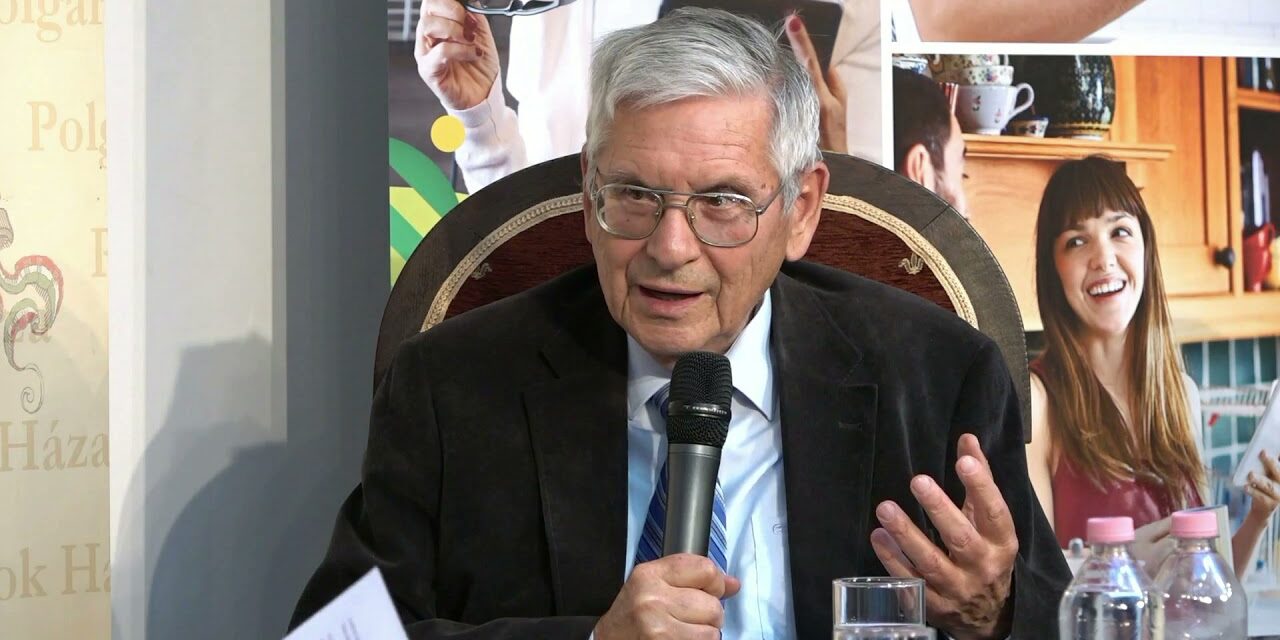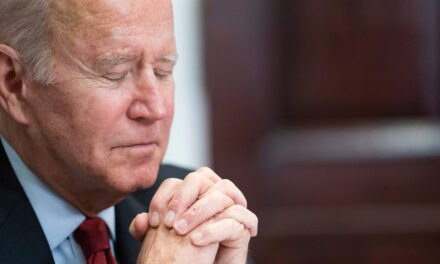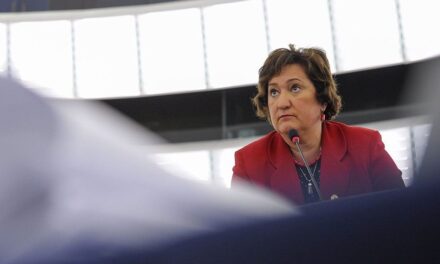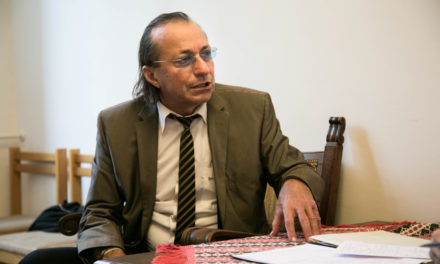If we want to act against the background power, it is necessary to create the same network with the tools that are available to us.
The term neocon is short for "neoconservatives", it is a political movement in the United States whose roots go back to the 1960s, and whose initiators were left-wing liberals disillusioned with the increasingly pacifist foreign policy of the Democratic Party. The movement gradually transformed into an interventionist movement, strongly supporting Israel and hostile to Russia and China, which became increasingly influential in American foreign policy from the nineties. He achieved this influence by having his followers gain a dominant role in both the Republican and Democratic parties and in American institutions in general, such as the State Department, the Pentagon, and the CIA. They are what Donald Trump and many others describe as the "deep state."
One of the first drafters of neoconservative foreign policy was Mrs. Jeane Kirkpatrick (1926–2006), who in the November 1979 issue of Commentary Magazine explained her views on American foreign policy at length, in which, among other criticisms, she sharply attacked the appeasement policy of then-President Jimmy Carter towards the Soviet Union. Later, under Ronald Reagan, he became the United States ambassador to the United Nations, where he politicized according to his previous principles.
One of the next builders of the ideological support of American interventionist foreign policy was Charles Krauthammer, who in an article published in Foreign Affairs in 1990 opposed the views that predicted the arrival of a multipolar world order after the collapse of the bipolar world order. Krauthammer proclaimed the formation and survival of a unipolar, American-dominated world order: "We are living in abnormal times. In times like these, our best hope for security is America's strength and resolve, as it has been in previous difficult times. The strength and determination for America to lead the unipolar world, unashamedly laying down the rules of the world order and enforcing its compliance.”
Similar views were expressed by national security advisor Zbigniew Brzezinski in 1995 in Foreign Affairs (A Plan for Europe: How to Expand NATO), and in 1997 he published his book entitled The Great Chessboard. A further milestone was the founding of the Project for the New American Century in 1997 by William Kristol and Robert Kagan, who in their founding statement declared America's interventionist goals: "We cannot safely avoid the responsibility of global leadership or the the costs associated with its exercise... We should have learned from the history of this century that we should take up the cause of American leadership," they wrote. Later, in 2000, a large memorandum (Rebuilding America's defenses) is published. In it, they explain in detail how they envision arming America to be able to fight two major wars and several smaller ones at the same time, as it was in American military doctrine.
The neocons were the main initiators and supporters of all the American wars waged in the 1990s and later in the 21st century (first and second Iraq war, intervention in Libya and Syria, bombing of Serbia), and almost all of them have a war that they played a decisive role in initiating. played. The expansion of NATO and the definition of China and Russia as enemies are also thanks to them, so the current Russian-Ukrainian war can clearly be traced back to the neocons' influence on American foreign policy.
The neocons blocked Trump's election there and then helped to overthrow him where they could, namely because they are, above all, representatives of American imperial policy, while Donald Trump represented American national interests and did not consider it necessary to maintain America's world police status. The difference is clearly highlighted by comparing the opinion of one of the neocon ideologues, Max Boot, with that of Trump. While, according to Boot, "American imperialism was the greatest good in the world in the last century", Donald Trump's America First slogan referred to the non-interventionist policy of a former president, Woodrow Wilson, which prioritized the national interest.
The relevant literature lists the representatives of the neocons in the government, scientific institutions, and government offices, as well as those scientific institutions, foundations, and newspapers that give space for the expression of their opinions. This is quite a long list, from which we mention only a few of the more well-known names, indicating their former highest rank. Among the politicians, George W. Bush (President), Hillary Clinton (Secretary of State), Jeb Bush (Governor of Florida), Dick Cheney (Secretary of War), Condoleezza Rice (Bush's National Security Adviser) can be highlighted.
Government officials include Jeane Kirkpatrick (UN Ambassador), Paul Wolfowitz (Deputy Secretary of Defense), Madeleine Albright (Secretary of State, initiator of the bombing of Serbia), Victoria Nuland (currently Deputy Secretary of State, main organizer of the 2014 Ukrainian coup). Among the representatives of science, that is, ideology, the already mentioned Robert Kagan (who, by the way, is the husband of Vicoria Nuland), Irving Kristol, Charles Krauthammer, and Max Boot, a journalist from the Washington Post, can be highlighted.
If we look at which universities the neocon notables listed (and not listed) belong to or belonged to, we find Berkeley, Harvard, Yale University, the University of Chicago and King's College in London among them. Among the institutions they represent are the American Enterprise Institute, the Foundation for Defense of Democracies, the Henry Jackson Society, the Hudson Institute, and others. Finally, if we look at the newspapers expressing the opinions of the aforementioned, we find - among many others - the New York Times, the Washington Post, and Foreign Policy.
With the list above, I think it's quite boring, I just wanted to make it clear that when Donald Trump wanted to drain the "swamp" in Washington, he did the impossible. This list also shows that it is a far-reaching network, in which there are ideologues who shape the policy, mediums who communicate to convince the population and politicians, there are the executors (politicians) and last but not least there are those who finance all this. The latter include various foundations and large financial institutions, but institutions such as the International Monetary Fund or the World Bank also serve neocon purposes.
The American neocons are only a part, but they are a defining part of the background power covering the entire Euro-Atlantic region, which determines what is good and what is bad according to its own interests and implements it with its politicians. The leadership of the union is also part of this background power, which is now clearly visible in the wake of the Russian-Ukrainian war, as it is clear that they do not represent European interests, but the interests of the Euro-Atlantic background power.
The background power is therefore not a centralized power machine, but a distributed network, in which there is no doubt that financiers play the biggest role, since the network would not function without funding. In the last thirty years, a huge concentration has taken place in all areas of life, so a few dozen financial conglomerates have a decisive role in financing and thus managing the network.
The concentration that has taken place in the media facilitates the effective dissemination of ideas that express the interests of the network. The media coverage accompanying Trump's two election campaigns illuminated the operation of the entire system like an X-ray machine. The European media's fierce attack against Trump pointed out that the power that determines European politics is connected to the American one, therefore - despite possible differences - the Euro-Atlantic background power forms a unified system.
If we want to act against this background power, it is necessary to create the same network with the tools we have at our disposal. Perhaps the most important of these is to have an alternative view system against the ideology of the background power. Now, at the momentary conclusion of the debate on the future of the European Union, it would be particularly important if we had our own, detailed vision of the future of Europe.
Source: Magyar Hírlap
Author: Károly Lóránt, economist, advisor to the National Forum
Photo: 2022plus












